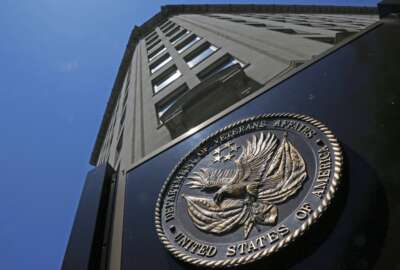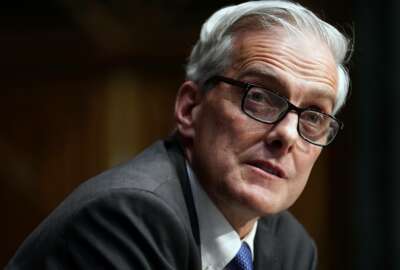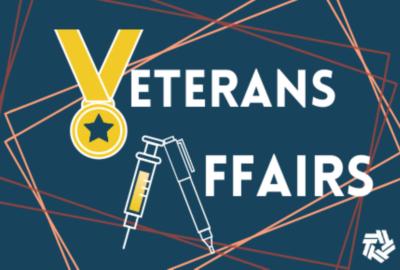$3B VA supplemental passes House, senators urge final vote by Friday deadline
VA needs the emergency funding by Friday to avoid delays in compensation and pension benefit payments that go to 7 million veterans and their survivors.
UPDATE: The Senate passed the $3 billion VA supplemental funding bill on Thursday to avoid delays in veterans’ benefits.
The Department of Veterans Affairs is one step closer to getting billions of dollars in supplemental funding to avoid disruptions in veterans’ benefits payments.
The House passed a $3 billion VA supplemental funding bill Tuesday evening to avoid an imminent budget shortfall.
House Speaker Mike Johnson (R-La.) said ahead of the vote that “preventing any potential lapse in our veterans’ benefits remains a top priority for Congress.”
“This egregious miscalculation by the administration and Department of Veterans Affairs has not only raised serious questions but exposed a grave failure,” Johnson said.
The Senate VA Committee also advanced the $3 billion supplemental bill on Tuesday.
VA officials say they need the emergency funding by the end of Friday to avoid a delay in compensation and pension benefit payments that go to 7 million veterans and their survivors.
The department also needs those funds to pay readjustment benefit payments to more than 800,000 veterans and their beneficiaries on time.
Under Secretary for Benefits Joshua Jacobs said Wednesday that the $3 billion supplemental accounts for nearly a week’s worth of payments.
“Any funding shortfall of even $1 would prevent VA from processing its September pay file, and as a result, delay benefit payments to approximately 7 million veterans and survivors,” Jacobs told the Senate VA Committee.
In the event of a lapse in funding, Jacobs said the Veterans Benefits Administration pays 98% of compensation and pension claims through direct deposit, and that the agency could send payments as soon as it gets more money from Congress.
However, Jacobs said the remaining 2% of veterans and their survivors — many living in rural areas — could see payments delayed by up to two weeks.
Transparency from the VA
Members of the Senate VA Committee are calling for a full Senate vote before the funding deadline, but are also demanding more transparency from the VA about its budget needs.
Committee Chairman Jon Tester (D-Mont.) said this is not the first time the VA has asked for additional funding, but said the department is providing more health care and benefits to more veterans under the toxic-exposure PACT Act signed in August 2022.
“Look, we knew addressing long-ignored issues like toxic exposure was going to cost a few bucks, but it is the right thing to do,” Tester said.
Committee Ranking Member Jerry Moran (R-Kan.) raised concerns the VA only notified Congress about the budget crunch months after submitting their FY 2025 budget request and appearing before both House and Senate committees to explain their budget needs.
“My complaint today is really with the level of trust and respect that I would hope we have from the Department of Veterans Affairs,” Moran said.
“Why wouldn’t you call and inform us about the problems that are arising, so that we can make the decisions at the appropriate time and avoid this?” he added.
Jacobs said the VBA stayed on track with this year’s spending plan through this spring. During a mandatory mid-session review in July, however, VBA updated its projections, and estimated it would complete 2.5 million claims decisions by the end of fiscal 2024 — about 300,000 more claims than it anticipated.
VBA didn’t initially have a “high level of confidence” in those new estimates, but Jacobs said he should have communicated the situation to Congress sooner.
“Looking back, I should have picked up the phone and said, ‘Hey, we’re working through this, and wanted to give you a heads up.’ So that’s one of my lessons that I’m going to take from this and promise to do better,” Jacobs said.
As of last week, VBA awarded more than $154 billion in compensation and pension benefits to veterans and survivors so far in fiscal 2024. Those benefits went to 6.7 million veterans and their survivors.
PACT Act
The Veterans Health Administration, meanwhile, is asking Congress for an additional $12 billion to keep hiring to stay ahead of higher-than-expected demand for care under the PACT Act.
The 2022 law made more veterans eligible for VA health care and benefits, if they were exposed to toxic substances during their military service.
Under Secretary for Health Shereef Elnahal said VHA is seeing higher levels of health care enrollment under the PACT Act than expected.
“The main driver of this is delivering more care to veterans than ever before, and we stand by our decision to open the doors into the health care system for more veterans,” he said. “I pledge to you that we will be as transparent as possible as we move forward, and we do think this is a good investment for future veteran care into the next fiscal year.”
More than 740,000 veterans have enrolled in VA care since President Joe Biden signed the PACT Act into law. That’s about a 33% increase, compared to two years before the legislation.
Another 891,000 veterans already enrolled in VA care saw an increase in their priority group, which makes them eligible for a more generous health care coverage package, with lower or no copays.
Elnahal told the committee that VHA hiring 61,000 employees in fiscal 2023 — its highest rate of growth in 15 years — “was the right decision to ensure we had the capacity to meet the needs of veterans,” and that even more hiring is needed to keep up with demand.
To prevent more funding shortfalls, Elnahal said VHA is increasing the total number of veterans it anticipates being able to serve in its budget projections. The agency, he added, is increasing outreach to veterans under the PACT Act.
“VA has not necessarily been present in communities where veterans are, at nearly the frequency where we are now. And I hope to be able to make sure that we project the result of that, which is more veterans finding out about their earned benefits and healthcare opportunities and enrolling with us,” Elnahal said.
Copyright © 2025 Federal News Network. All rights reserved. This website is not intended for users located within the European Economic Area.
Jory Heckman is a reporter at Federal News Network covering U.S. Postal Service, IRS, big data and technology issues.
Follow @jheckmanWFED






